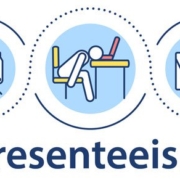Employers, Tune Up Your Employee Value Proposition for the Road Ahead
- Learn 5 things to assess and monitor regarding your employee value proposition.
- Find out how to keep your compensation package competitive.
- Learn which benefits should be included in a robust benefits package.
- Consider your company’s career development for employees.
- Learn about the work environment job candidates are looking for right now.
- Consider your organizational culture.
Over the past couple of years, the “Great Resignation” raised much concern among employers. Many experts now believe it’s safe to say that this trend of employees voluntarily leaving their jobs has largely drawn to a close. But that doesn’t necessarily mean the power pendulum has swung back to employers. Unemployment remains relatively low, and job candidates still have a plethora of resources to compare employers. So, you’ve still got to put in the work to win over the best job candidates and retain valued employees. One way to ensure you’re ready for the road ahead is to tune up your employee value proposition (EVP).

5 things to assess and monitor regarding your employee value proposition
Simply defined, your employee value proposition is everything of value your organization offers employees. That doesn’t mean only a paycheck, though compensation is certainly part of the equation. It includes all the tangibles and intangibles that make up your employer brand. Most graphical representations of EVP encompass five sections:
1. Compensation
As mentioned, pay is undoubtedly crucial to candidates and employees — just as it’s always been. You must still offer competitive salaries or wages as benchmarked within your industry and geographic location. In addition, your employee value proposition needs to account for how raises are determined under a fair and equitable evaluation system.
2. Employee benefits
The old term “fringe” benefits are starting to look more and more dubious, as most candidates and employees now expect a robust and varied benefits package. A strong employee value proposition should generally include a substantial list of offerings such as paid time off, a retirement plan, and health insurance as well as many additional benefits that suit the distinctive demographics and needs of your workforce. These might include child and dependent care benefits, paid sick leave, and life insurance.
3. Career development
Many, perhaps most, candidates and employees want more than just a job. They want a position that can take them somewhere both professionally and personally. So, your employee value proposition needs to describe how your organization can help employees define a career path; partake in continuing education, training, and upskilling; and receive constructive guidance from supervisors and others.
4. Work environment
What’s it like to work for your organization on a day-to-day basis? People want to know they’re stepping into a positive, supportive, and inclusive environment. Today’s candidates and employees also increasingly expect flexibility. Do you permit remote work? Can they adjust their schedules to support work-life balance? How much autonomy is granted to each position? Your employee value proposition should answer questions such as these.
5. Organizational culture
Think of your culture as the invisible cloud that hangs over your work environment. Is it a white fluffy cloud with blue skies all around? Or is it a dark cloud that unnecessarily and counterproductively casts a shadow on your workplace? If it’s the latter, you’ve got some work to do! The point is, your employee value proposition needs to honestly articulate the culture of your organization in things such as mission and vision statements, as well as perhaps testimonials from employees.
Internal and external
It’s important to note that a truly compelling employee value proposition encompasses both internal and external functions. That is, you should be able to use the concept to keep tabs on all five areas of your organization while also using your EVP to communicate with job candidates and employees. Need help assessing the costs of all the ways you’re offering value to both current and prospective employees? Call Fiducial at 1-866-FIDUCIAL or make an appointment at one of our office locations to discuss your situation.
Ready to book an appointment now? Click here. Know someone who might need our services? We love referrals!









